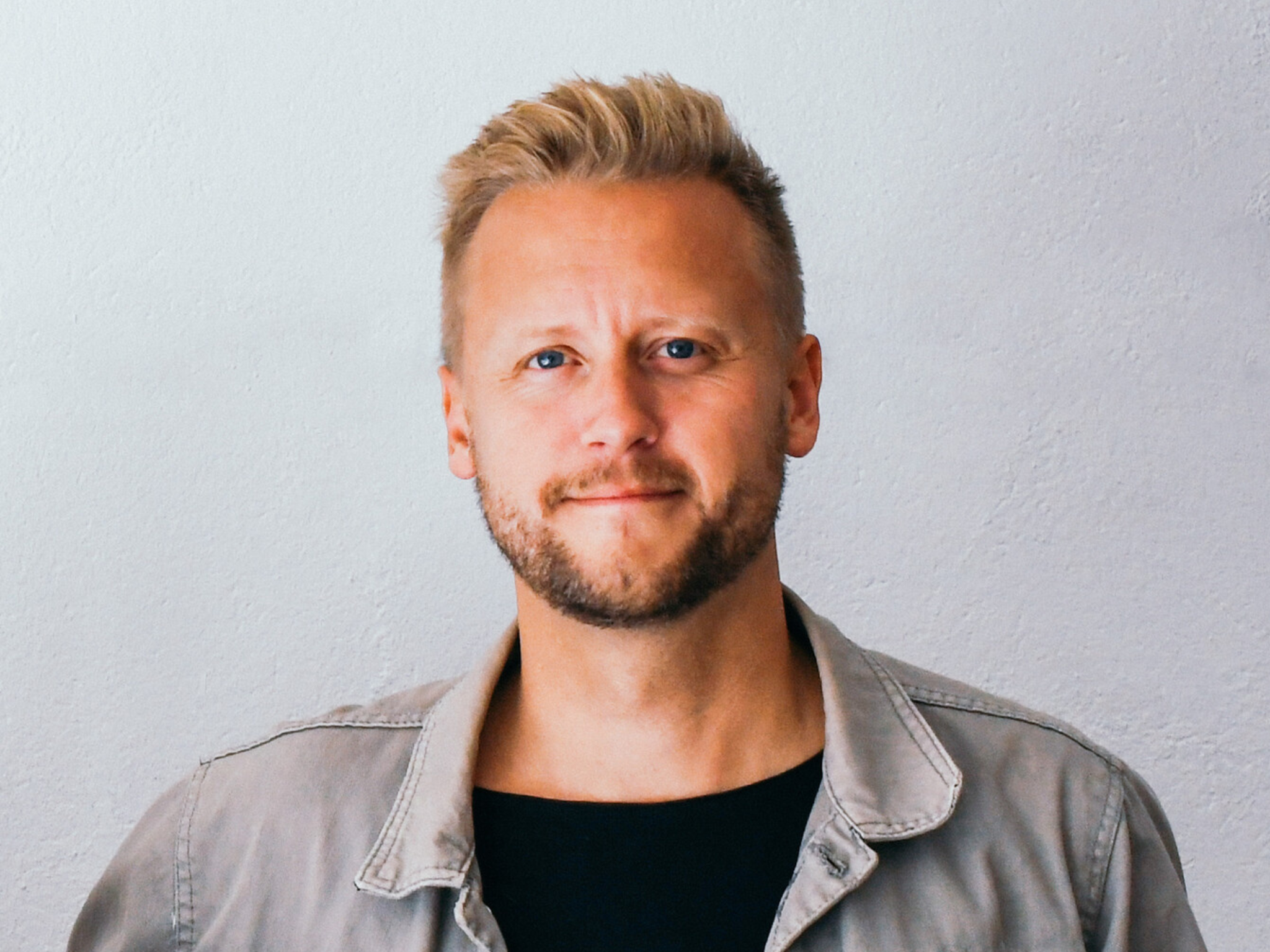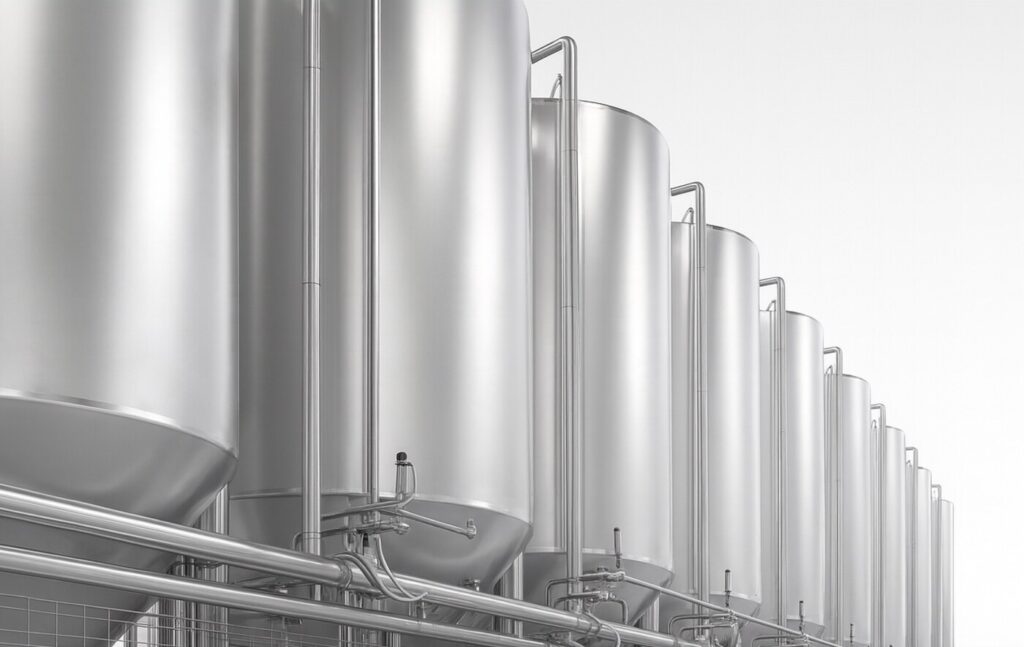
Swedish food tech startup Re:meat has evolved from a cultivated meat producer to a sustainable protein biomanufacturer, now called Curve.
Two months after signing a deal to establish Scandinavia’s first cultivated meat facility, Re:meat is expanding its cellular agriculture platform to enable cost-efficient manufacturing of novel proteins.
The company has announced a strategic rebrand to Curve, shifting focus away from producing its own ingredients and opening up its production platform to help other sustainable food manufacturers speed up their processes and path to market.
The pivot came from what we learned firsthand: the real bottleneck in biomanufacturing isn’t scientific — it’s technical and economic scalability. We realised our greatest impact wouldn’t come from producing a single end-product, but from enabling many companies to scale their own,” co-founder and CEO Jacob Schaldemose Peterson told Green Queen.
“Curve exists to provide the infrastructure – the production systems and process intelligence – that make scalable biomanufacturing possible.”
How Curve overcomes scale and cost challenges

Peterson founded Curve with Gittan Schiöld in 2022, producing cultivated meat by growing immortalised cells of free-range livestock in bioreactors. Its process currently takes three weeks, with an initial focus on minced meat.
The company claims its patented core technology radically lowers the cost of hardware for cultivated meat, an important step towards scaling cultivated proteins and enabling mass adoption. Curve says proteins are the foundation of future nutrition and healthcare, and today’s production systems weren’t built for these new markets.
That’s because they’re resource-heavy, slow to scale, and economically misaligned. Instead, the next era of biotech requires tech that can produce complex proteins at industrial scale, with minimal cost and climate impact.
Analysis suggests that the cultivated meat industry has lowered production costs by 99% in a decade. However, it’ll still take until at least 2030 for these proteins to begin approaching price parity with conventional meat.
Many cellular agriculture startups are still reliant on the bioreactors of the pharmaceutical industry. However, these are not purpose-built for the lower-margin cultivated meat sector, and hence are much more expensive.
“Traditional bioreactors were designed for pharma, where cost per unit isn’t the main driver. We’ve re-engineered the system from the ground up for industrial biotech — optimising fluid dynamics, control systems, and material use,” explained Peterson.
Curve is looking to usher in smarter biomanufacturing practices, having developed modular production systems that “close the gap between basic food-grade fermenters and costly pharma-grade setups”. It has developed an alternative to the controversial and expensive fetal bovine serum, which makes up a big chunk of production costs.
This is an approach used by a growing number of food tech firms, including cultured pork producer Mission Barns, cultivated pet food startup Meatly, and AI-led biotech firm Arsenale Bioyards.
Curve’s platform can reduce costs by 70%

Curve’s core Biobric platform combines physical hardware with data simulations to enable optimised conditions, strain learning, and automated process refinement. It’s designed for “cost leadership”, reducing capital and operational expenditure by up to 70%, accelerating process optimisation, and enabling commercially viable precision fermentation and cultivated meat.
“Cost-efficient cultivated meat production has always been the ambition for Re:meat,” said Torbjörn Sahlén, an investor and board member at Curve. “However, experience shows that if we focus exclusively on that, we are not maximising our ability to scale and leave significant potential untapped. This shift – and consequently the name Curve – reflects this strategic opportunity.”
The refreshed entity is working closely with precision fermentation and biotech companies to jointly run scale-up trials and optimise strains, media and processes before licensing validated systems to industrial producers. It marks a shift from a single vertical into a multi-category protein platform.
The company secured $1.1M in funding earlier this year, and in September, it teamed up with Biotech Heights, a biotech innovation in Lund, to launch the region’s first cultivated meat facility. The pilot plant, titled Re:meatery at the time, will be installed by the end of 2025 and validated with partners and clients in spring 2026.
“The pilot facility is progressing well,” said Peterson. “Here, we will validate systems and run joint upscaling trials with partners. While it’s no longer branded ‘Re:meatery’, it continues to play a key role in scaling and validating our technology before full industrial rollout.”
Curve’s systems are designed to meet food-grade standards and are aligned with Good Manufacturing Practice (GMP) standards to simplify regulatory pathways for its clients, whose responsibility it will be to seek regulatory approval for end products.
Peterson said the B2B model isn’t the only way to success for cultivated meat, but it’s “probably the most scalable path” for now. “The economics and infrastructure challenges of biomanufacturing are simply too great for most ingredient brands to solve alone,” he said.
“By building shared tools and production systems, B2B models accelerate the entire field. Once the underlying technology and cost base are established, B2C innovation can flourish on top.”
The post Sweden’s Re:meat Rebrands to Curve to Enable Low-Cost, Large-Scale Biomanufacturing appeared first on Green Queen.
This post was originally published on Green Queen.